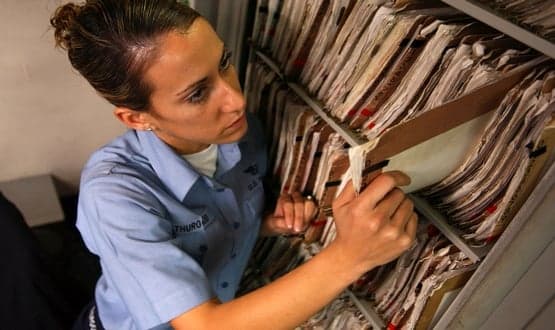PRSB seeks public opinion on digitising old GP records
- 24 September 2019

The Professional Record Standards Body (PRSB) has launched a survey to find out the opinions of patients, carers, and GP practices about the benefits and potential challenges of digitising old GP records.
The findings and recommendations from the consultation will inform plans for digitising ‘Lloyd George’ records – a type of file that has been used for decades to store GP health records.
While almost all the information about a person’s ongoing care, including a summary of the paper records, is now recorded in GP digital systems, the old paper records are still maintained and take up a lot of space in general practice.
Scanning and storing the entire record digitally could free up space in practices for clinical use, safeguard them from a fire or flood and make it easier for practices to find records when asked for them.
Based on NHS research and evidence, it is recommended that the full records are scanned and held by each practice on their own digital health record systems.
The organisation had asked the PRSB to consult with patients, carers and GP practices to find out if they think that digitising the complete records would be useful, and the challenges and benefits it may present.
Matt Hoghton, GP and clinical advisor for the primary care digital transformation team at NHSX, said: “Old paper GP records contain a range of information about a person’s health and care. It’s important that the NHS digitises them so that they are easily retrievable by GPs and can be viewed by patients.
“The NHS is working out how to best do this. We’re keen to hear from patients, carers, GPs and community health professionals about which old records would be useful to keep, and any concerns they have about the digitisation process.”
The survey, which can be found here and will close at midday on 4 October.
The PRSB is the organisation tasked with developing standards for digital health and care records.
Most recently it published new standards for shared care records, in an effort to defined exactly what information should be shared in a person’s care record throughout their life.





1 Comments
Excellent idea.
In addition to the space released in Practices, as patients move around the country their record can be sent electronically to the next Practice more quickly, and probably more legibly than multi sized and frayed pieces of paper.
Comments are closed.